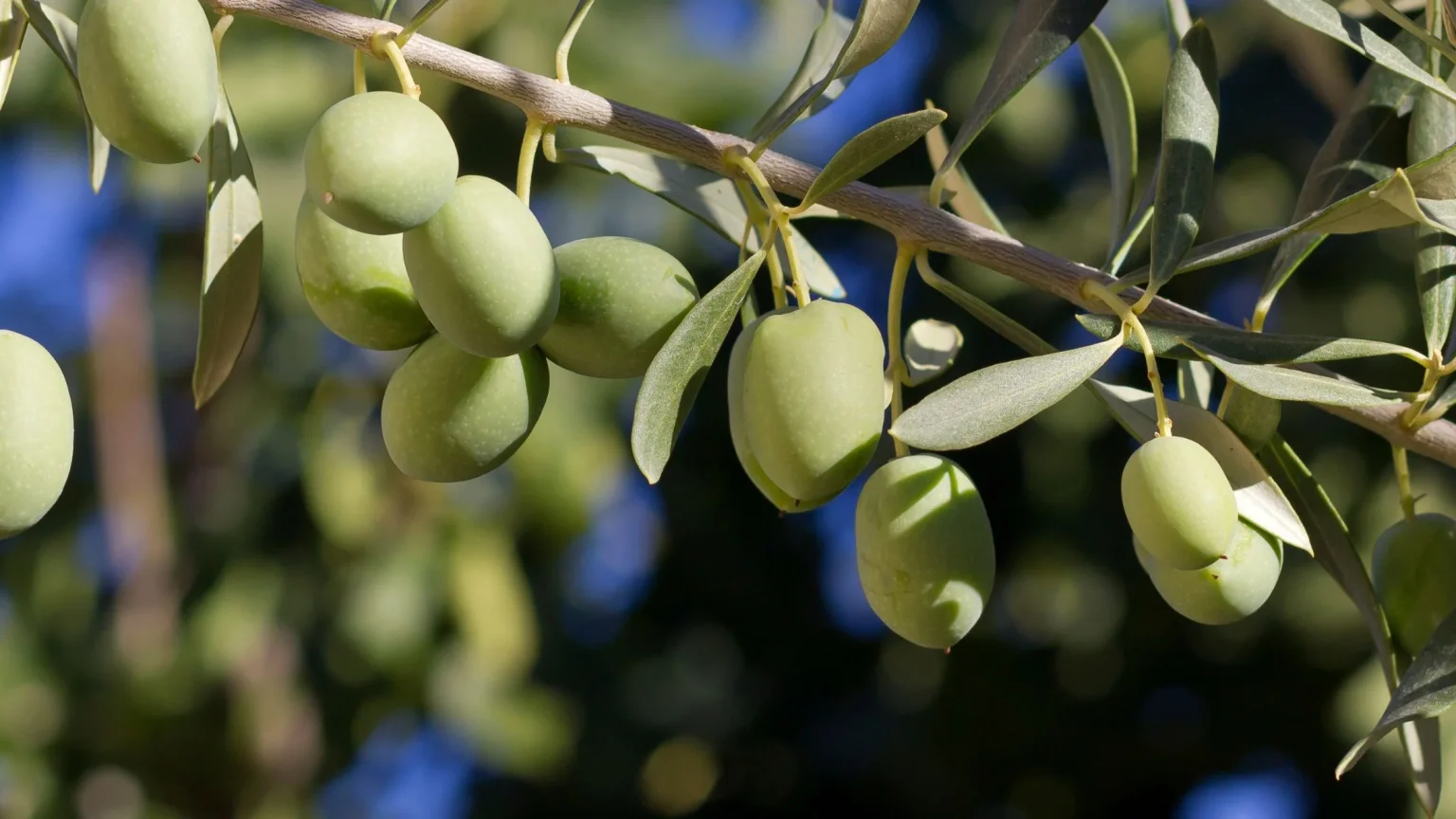Oleuropein, a potent polyphenol compound found in olive leaves and olive oil, is considered a powerhouse of health benefits. As a natural antioxidant, oleuropein offers a wide range of therapeutic properties, including cardiovascular support, anti-inflammatory effects, and neuroprotective potential. This article delves into the remarkable features of oleuropein, exploring its origins, mechanisms of action, and the various ways it can enhance overall well-being.

Key Takeaways
- Oleuropein is a potent polyphenol compound found in olive leaves and olive oil.
- Oleuropein has powerful antioxidant properties that can support cardiovascular health and regulate blood pressure.
- The anti-inflammatory effects of oleuropein may help prevent and manage chronic diseases.
- Oleuropein from the Mediterranean diet and olive oil can provide neuroprotective benefits for brain health.
- Incorporating oleuropein-rich foods and supplements can be a natural remedy to enhance overall well-being.
Understanding Oleuropein: Nature’s Gift from Olive Trees
Oleuropein is a unique polyphenol compound primarily found in the leaves, fruits, and seeds of the olive tree (Olea europaea). This remarkable antioxidant possesses the ability to scavenge free radicals and inhibit oxidative stress, making it a powerful protector against cellular damage.
What is Oleuropein?
Oleuropein is a complex molecule that belongs to the class of secoiridoid compounds. It is the primary polyphenol found in olive leaves and is also present in high-quality extra virgin olive oil. This natural compound is responsible for the bitterness and pungency associated with unripe olives and olive leaves.
The Potent Antioxidant Properties of Oleuropein
As a natural antioxidant, oleuropein plays a crucial role in neutralizing harmful free radicals and inhibiting oxidative stress. By scavenging these reactive species, oleuropein helps to protect cells and tissues from damage, reducing the risk of various age-related and chronic diseases.
Sources of Oleuropein: Olive Leaves and Olive Oil
The olive tree, a hallmark of the Mediterranean region, is the primary source of oleuropein. This compound can be extracted from both olive leaves and high-quality extra virgin olive oil, which is renowned for its exceptional health benefits. Consuming oleuropein-rich foods and supplements derived from the olive tree can help individuals harness the power of this natural antioxidant.
Oleuropein (Olea Europaea): A Powerhouse of Health Benefits
Oleuropein has been extensively studied for its remarkable health benefits, particularly in the areas of cardiovascular support and anti-inflammatory properties. Research has demonstrated oleuropein’s ability to regulate blood pressure, improve endothelial function, and reduce the risk of cardiovascular diseases. Additionally, oleuropein’s anti-inflammatory mechanisms have implications for the prevention and management of chronic conditions, such as metabolic disorders, neurological diseases, and certain types of cancer.
Cardiovascular Health and Blood Pressure Regulation
Oleuropein’s cardiovascular health benefits have been well-documented. Studies have shown that oleuropein can help regulate blood pressure by improving endothelial function and promoting vasodilation. This in turn can contribute to a reduced risk of hypertension, atherosclerosis, and other cardiovascular diseases. The antioxidant properties of oleuropein also play a crucial role in protecting the cardiovascular system from oxidative stress and inflammation.
Anti-Inflammatory Properties and Potential for Chronic Disease Prevention
In addition to its cardiovascular benefits, oleuropein has demonstrated potent anti-inflammatory properties. The compound’s ability to modulate inflammatory pathways and reduce the production of pro-inflammatory mediators has implications for the prevention and management of various chronic diseases. By targeting the underlying inflammatory mechanisms, oleuropein may offer potential therapeutic applications in metabolic disorders, neurological conditions, and even certain types of cancer.
| Health Benefit | Mechanism of Action | Key Outcomes |
|---|---|---|
| Cardiovascular Health | Regulation of blood pressure, improvement of endothelial function, reduction of oxidative stress | Decreased risk of hypertension, atherosclerosis, and other cardiovascular diseases |
| Anti-Inflammatory Properties | Modulation of inflammatory pathways, reduction of pro-inflammatory mediators | Potential for prevention and management of chronic conditions, such as metabolic disorders, neurological diseases, and certain types of cancer |
Harnessing the Power of Polyphenols: The Mediterranean Diet
The Mediterranean diet, renowned for its health benefits, is rich in polyphenol-containing foods, including olive oil, which is a primary source of oleuropein. By embracing the principles of the Mediterranean diet and incorporating oleuropein-rich foods, individuals can harness the power of this potent antioxidant to support their overall well-being.
The Role of Oleuropein in the Mediterranean Diet
The Mediterranean diet is characterized by a high intake of olive oil, which is a rich source of polyphenols like oleuropein. These bioactive compounds contribute to the numerous health benefits associated with the Mediterranean diet, including improved cardiovascular health, reduced inflammation, and potential neuroprotective effects.
Incorporating Oleuropein into Your Diet
Incorporating oleuropein into your diet can be achieved through various means, such as consuming olive leaf extracts or using high-quality extra virgin olive oil in your daily cooking and meal preparation. By making these simple dietary choices, you can leverage the power of oleuropein and the principles of the Mediterranean diet to support your overall health and well-being.
Exploring the Neuroprotective Potential of Oleuropein
Emerging research suggests that oleuropein, the potent polyphenol compound found in olive leaves and olive oil, may possess neuroprotective properties, offering promising applications in the field of brain health and neurodegenerative disorders. Studies have indicated that oleuropein can support cognitive function, promote neuronal regeneration, and potentially mitigate the progression of conditions like Alzheimer’s disease and Parkinson’s disease.
Oleuropein and Brain Health
Oleuropein’s neuroprotective properties are believed to be attributed to its ability to modulate various pathways in the brain. As a potent antioxidant, oleuropein can neutralize harmful free radicals and reduce oxidative stress, which are known contributors to neurodegeneration and cognitive decline. Furthermore, oleuropein has demonstrated the capacity to enhance neuroplasticity, the brain’s ability to adapt and form new neural connections, thereby supporting overall brain health.
Potential Applications in Neurodegenerative Disorders
The neuroprotective potential of oleuropein has garnered significant interest in the context of neurodegenerative disorders, such as Alzheimer’s disease and Parkinson’s disease. Emerging evidence suggests that oleuropein may play a role in mitigating the progression of these conditions by targeting various pathological mechanisms, including amyloid-beta aggregation, neuroinflammation, and mitochondrial dysfunction. By addressing these underlying factors, oleuropein may offer a natural, multifaceted approach to supporting brain health and potentially slowing the advancement of neurodegenerative disorders.
Conclusion: Embracing Oleuropein as a Natural Remedy
In the captivating journey through the world of oleuropein, a remarkable compound derived from the olive tree, we have witnessed the true power of nature’s ability to provide transformative therapeutic solutions. This potent antioxidant has demonstrated an exceptional ability to support cardiovascular health, combat inflammation, and even exhibit neuroprotective properties, offering a multifaceted approach to overall well-being.
By embracing the use of oleuropein, whether through the inclusion of olive leaf extracts or the integration of high-quality extra virgin olive oil into one’s diet, individuals can harness the extraordinary potential of this natural remedy. The widespread adoption of oleuropein holds the promise of enhanced longevity, reduced risk of chronic conditions, and a heightened sense of vitality – a true testament to the remarkable gifts bestowed upon us by the Mediterranean lifestyle and the olive tree itself.
As research continues to unravel the full scope of oleuropein’s benefits, the future holds immense promise for the widespread application of this natural superstar. By incorporating oleuropein into our daily lives, we can elevate our overall health and wellness, empowering ourselves to live vibrant, resilient, and fulfilling lives, guided by the wisdom of nature’s most extraordinary bounties.
FAQ
What is oleuropein?
Oleuropein is a potent polyphenol compound found primarily in the leaves, fruits, and seeds of the olive tree (Olea europaea). It is considered a powerhouse of health benefits due to its remarkable antioxidant and therapeutic properties.
What are the antioxidant properties of oleuropein?
As a natural antioxidant, oleuropein possesses the ability to scavenge free radicals and inhibit oxidative stress, making it a powerful protector against cellular damage. The olive tree is the primary source of oleuropein, which can be extracted from both olive leaves and high-quality olive oil.
How does oleuropein support cardiovascular health and blood pressure regulation?
Extensive research has demonstrated oleuropein’s ability to regulate blood pressure, improve endothelial function, and reduce the risk of cardiovascular diseases. Oleuropein’s mechanisms of action include modulating nitric oxide production, improving lipid profiles, and reducing inflammation in the cardiovascular system.
What are the anti-inflammatory properties of oleuropein?
Oleuropein has been studied for its potent anti-inflammatory properties, which have implications for the prevention and management of chronic conditions, such as metabolic disorders, neurological diseases, and certain types of cancer. Oleuropein’s anti-inflammatory mechanisms involve the modulation of inflammatory pathways and the reduction of pro-inflammatory mediators.
How does oleuropein relate to the Mediterranean diet?
The Mediterranean diet, renowned for its health benefits, is rich in polyphenol-containing foods, including olive oil, which is a primary source of oleuropein. By embracing the principles of the Mediterranean diet and incorporating oleuropein-rich foods, individuals can harness the power of this potent antioxidant to support their overall well-being.
What are the neuroprotective properties of oleuropein?
Emerging research suggests that oleuropein may possess neuroprotective properties, offering potential applications in the field of brain health and neurodegenerative disorders. Studies have indicated that oleuropein can support cognitive function, promote neuronal regeneration, and potentially mitigate the progression of conditions like Alzheimer’s disease and Parkinson’s disease.











